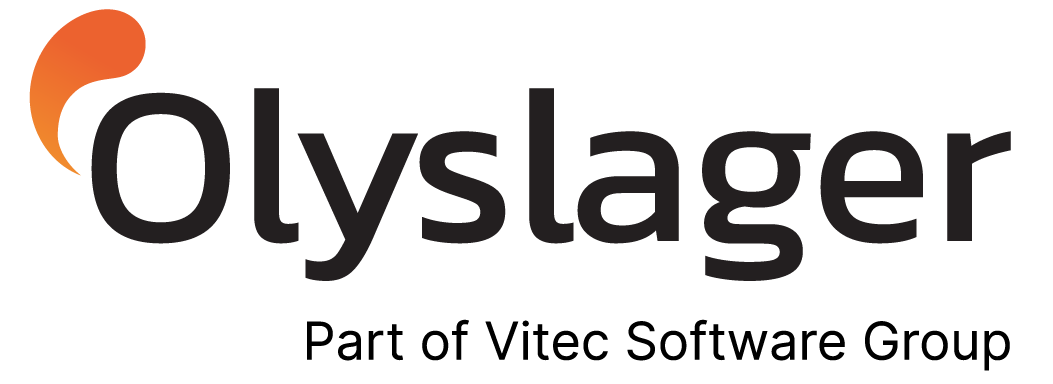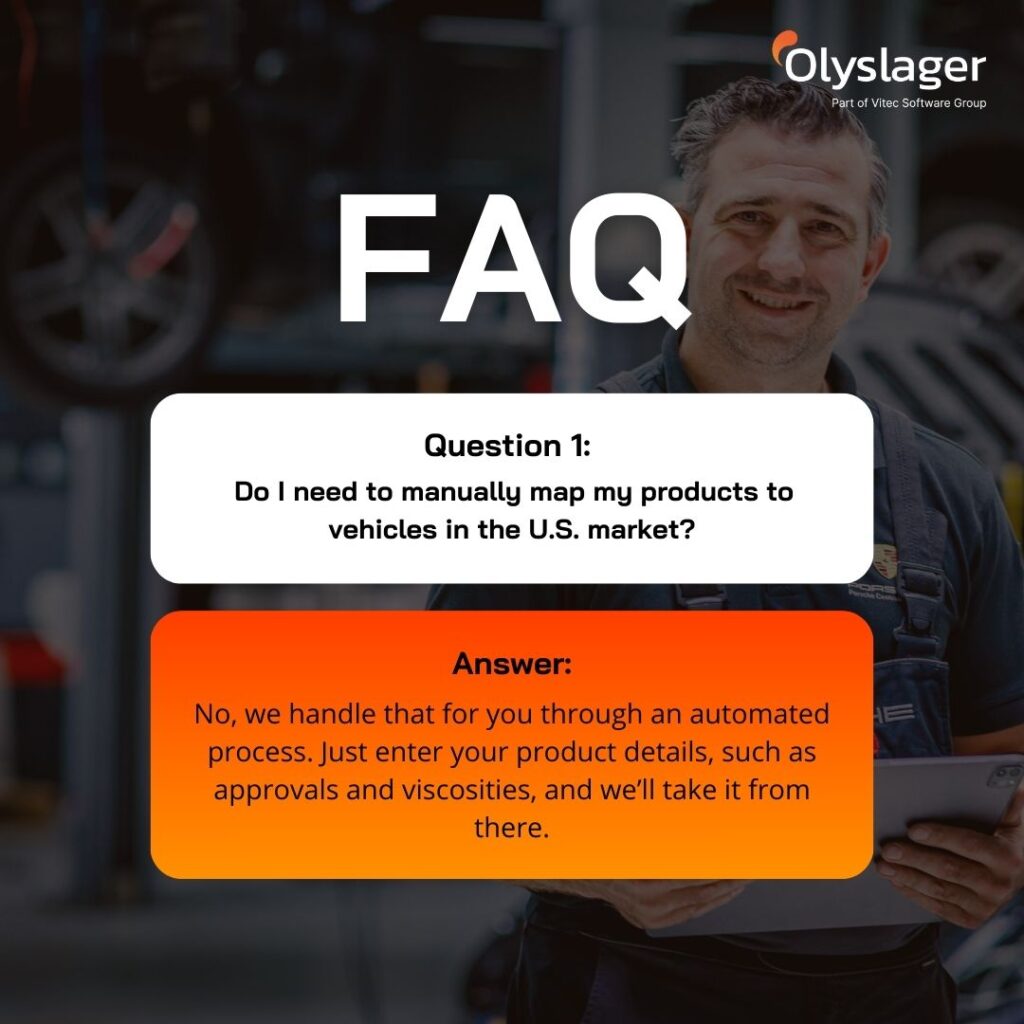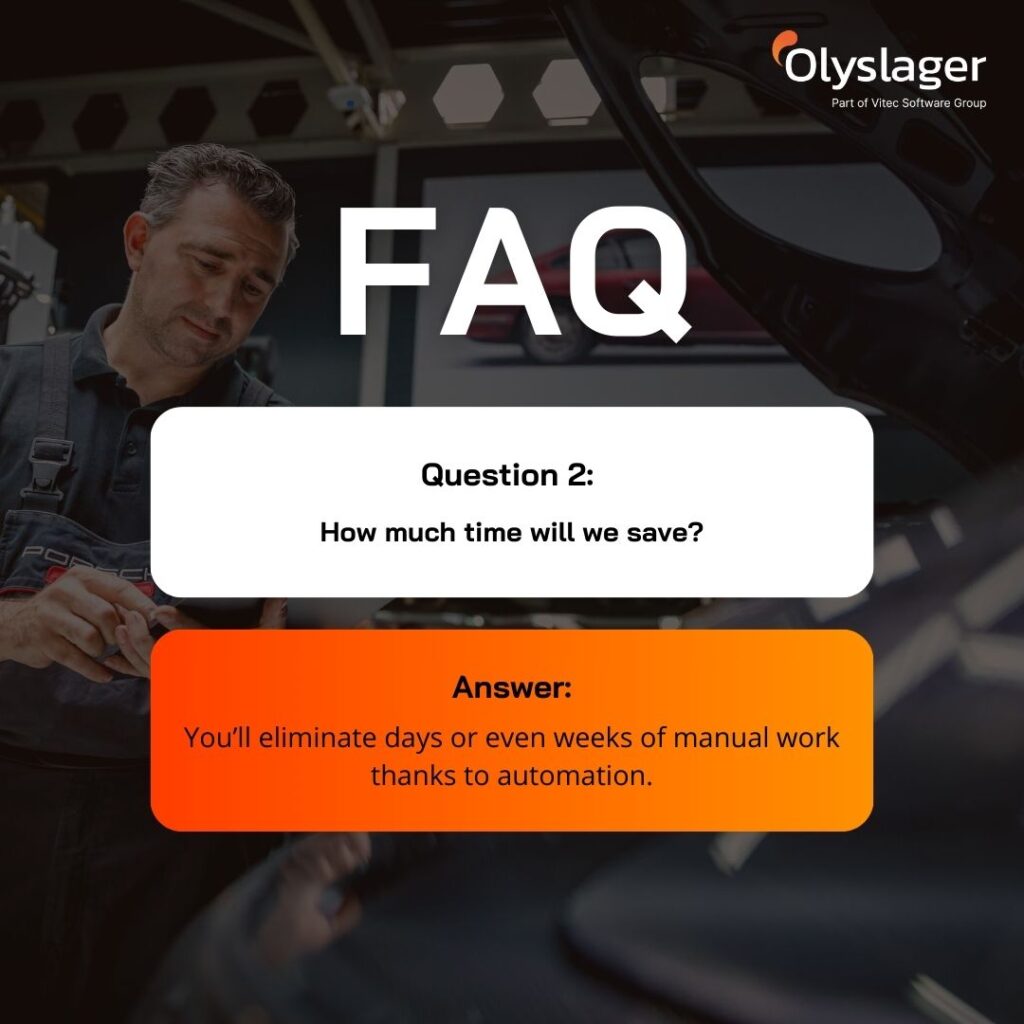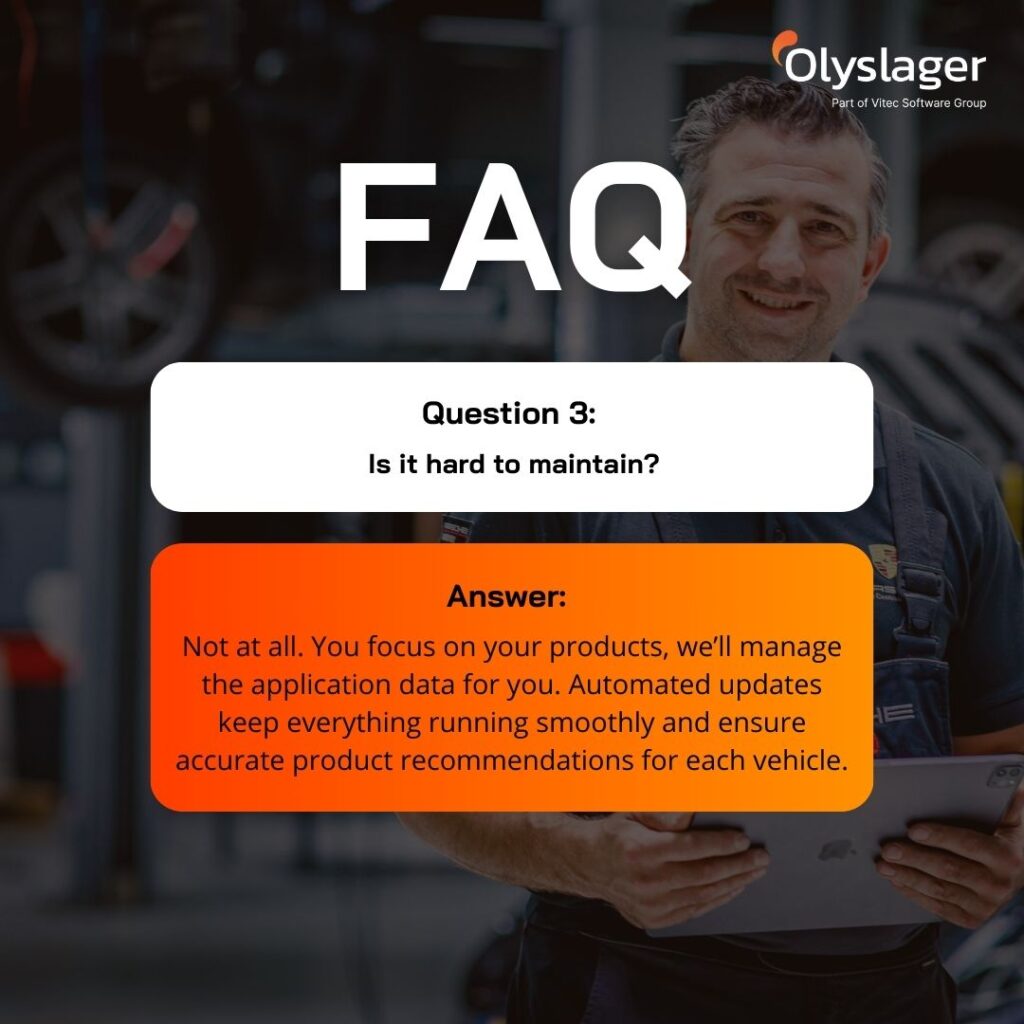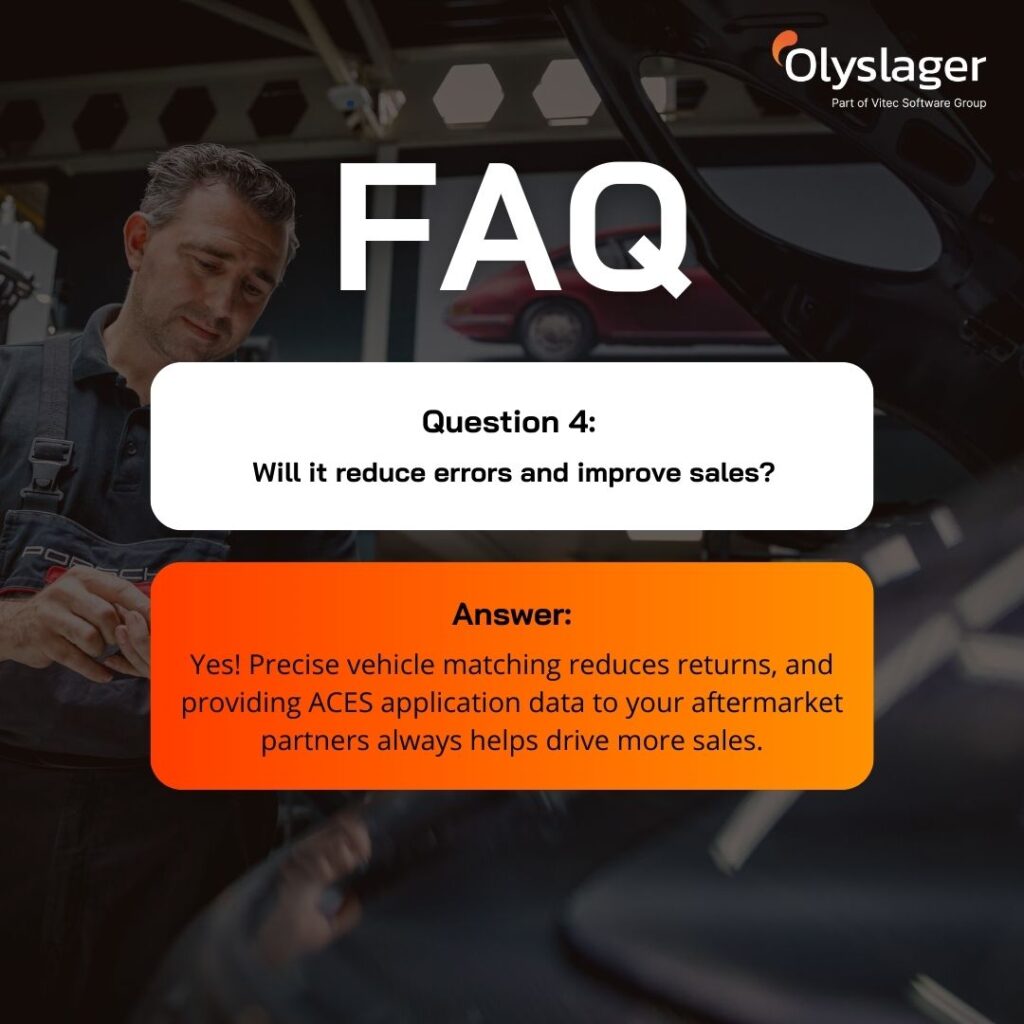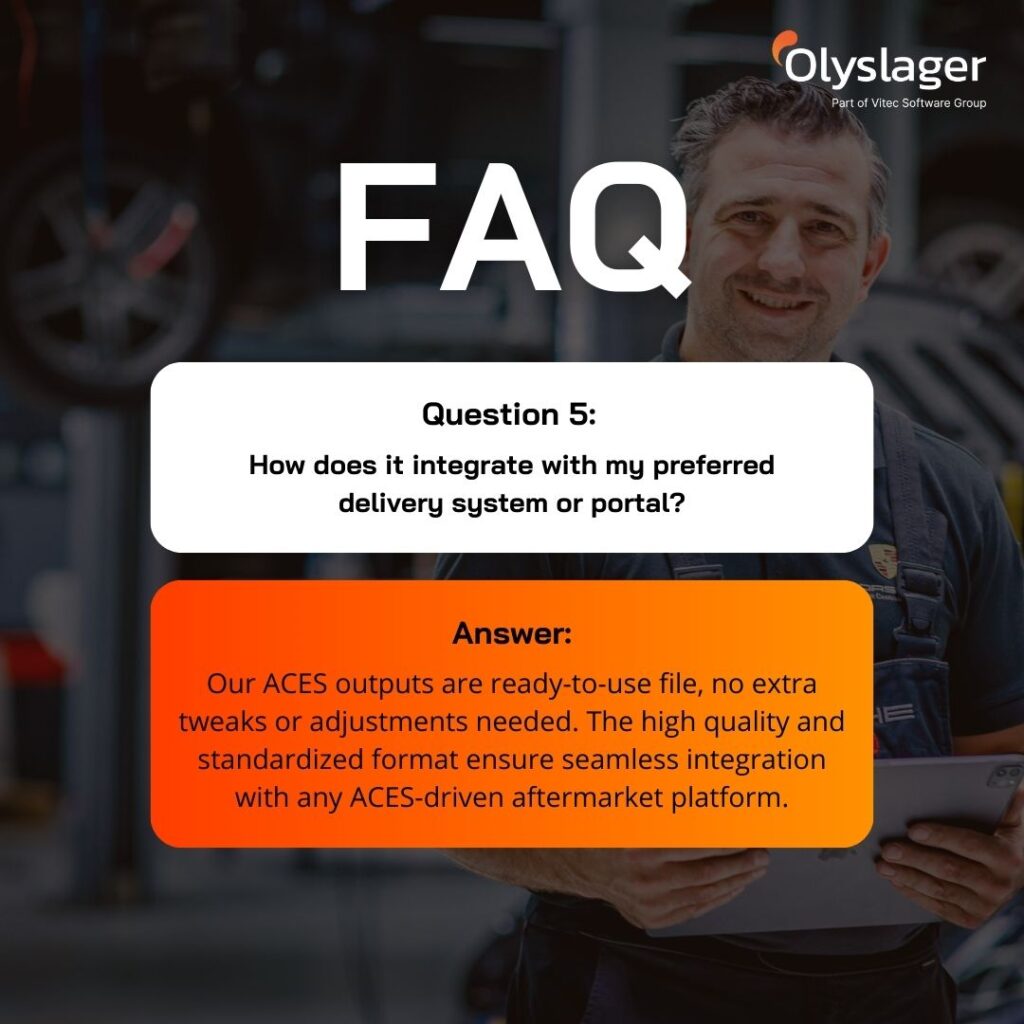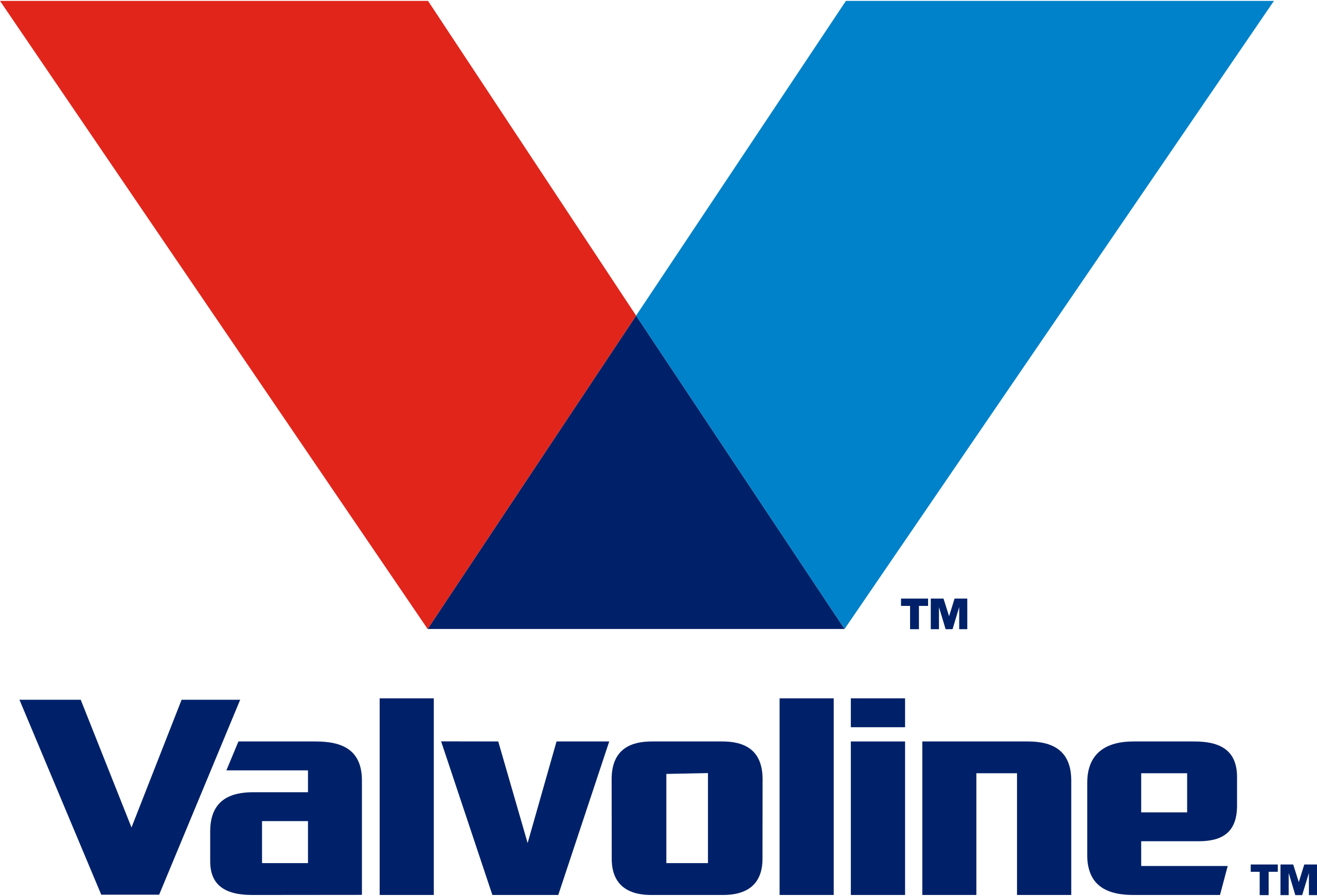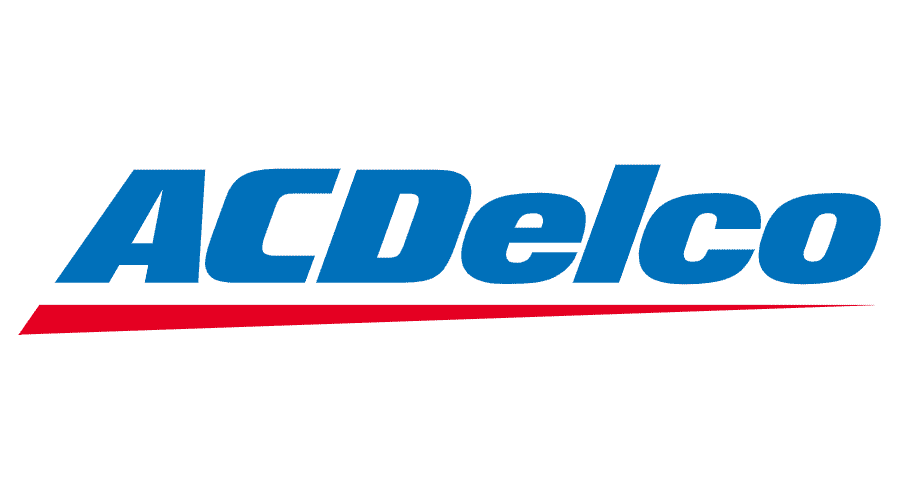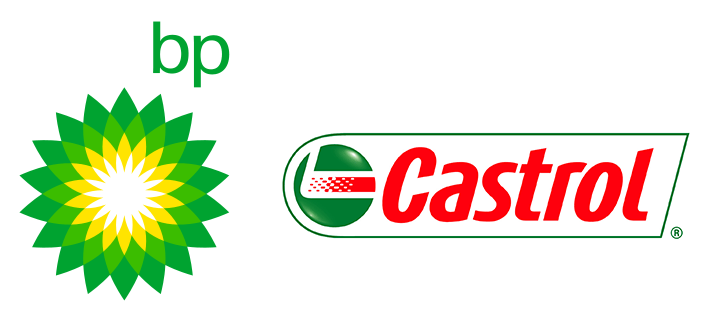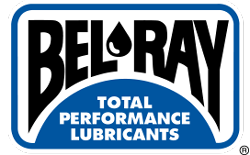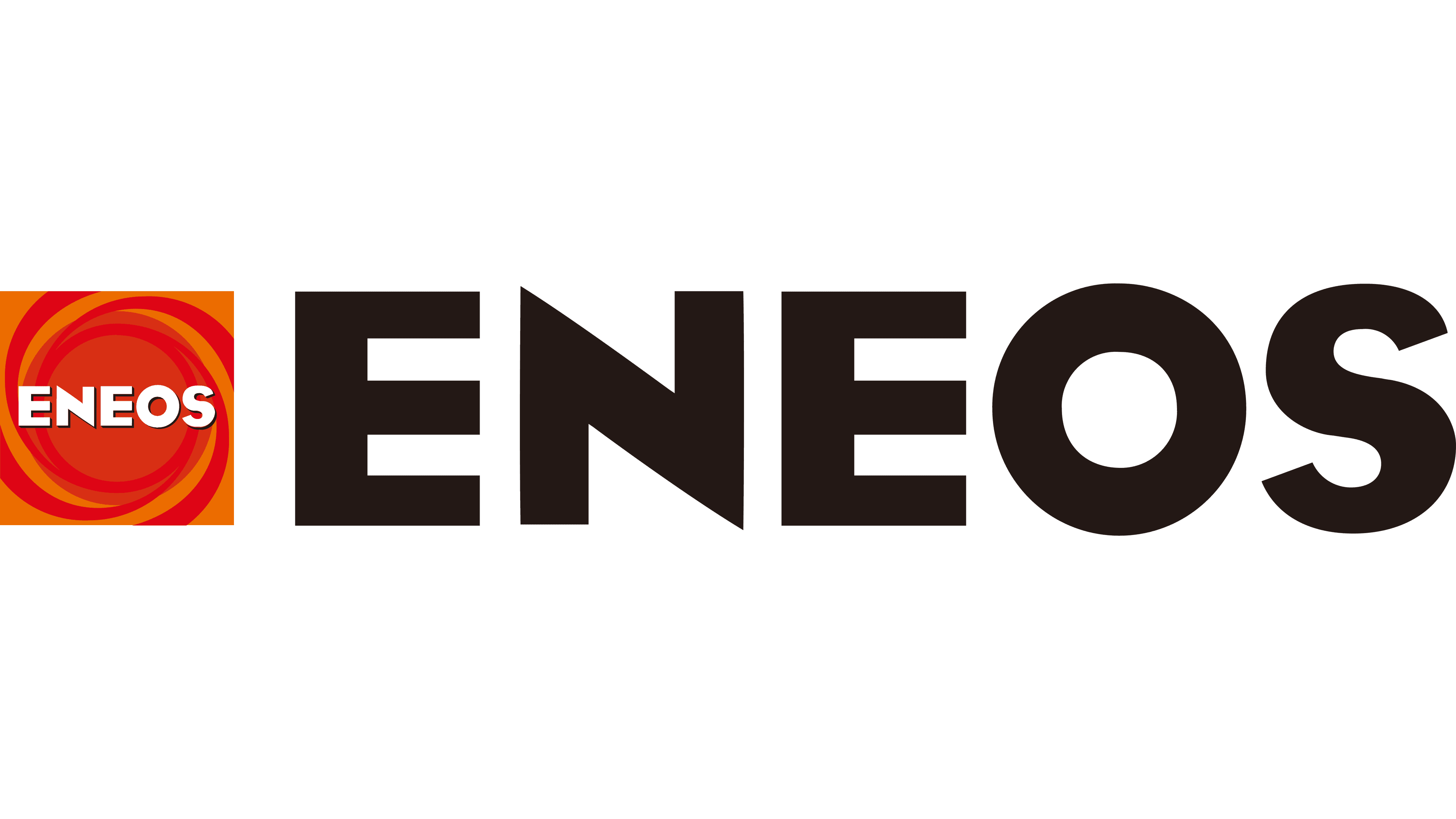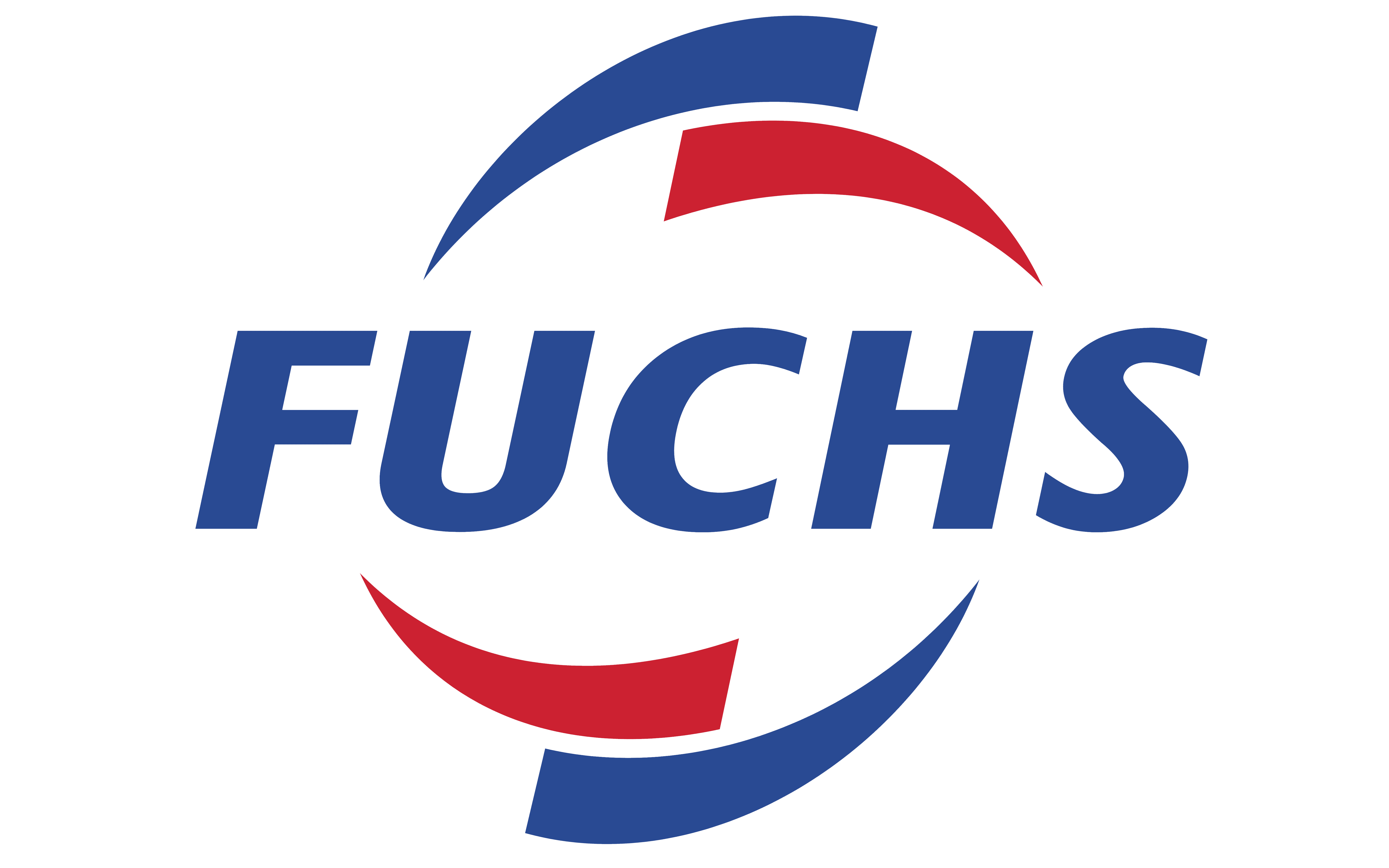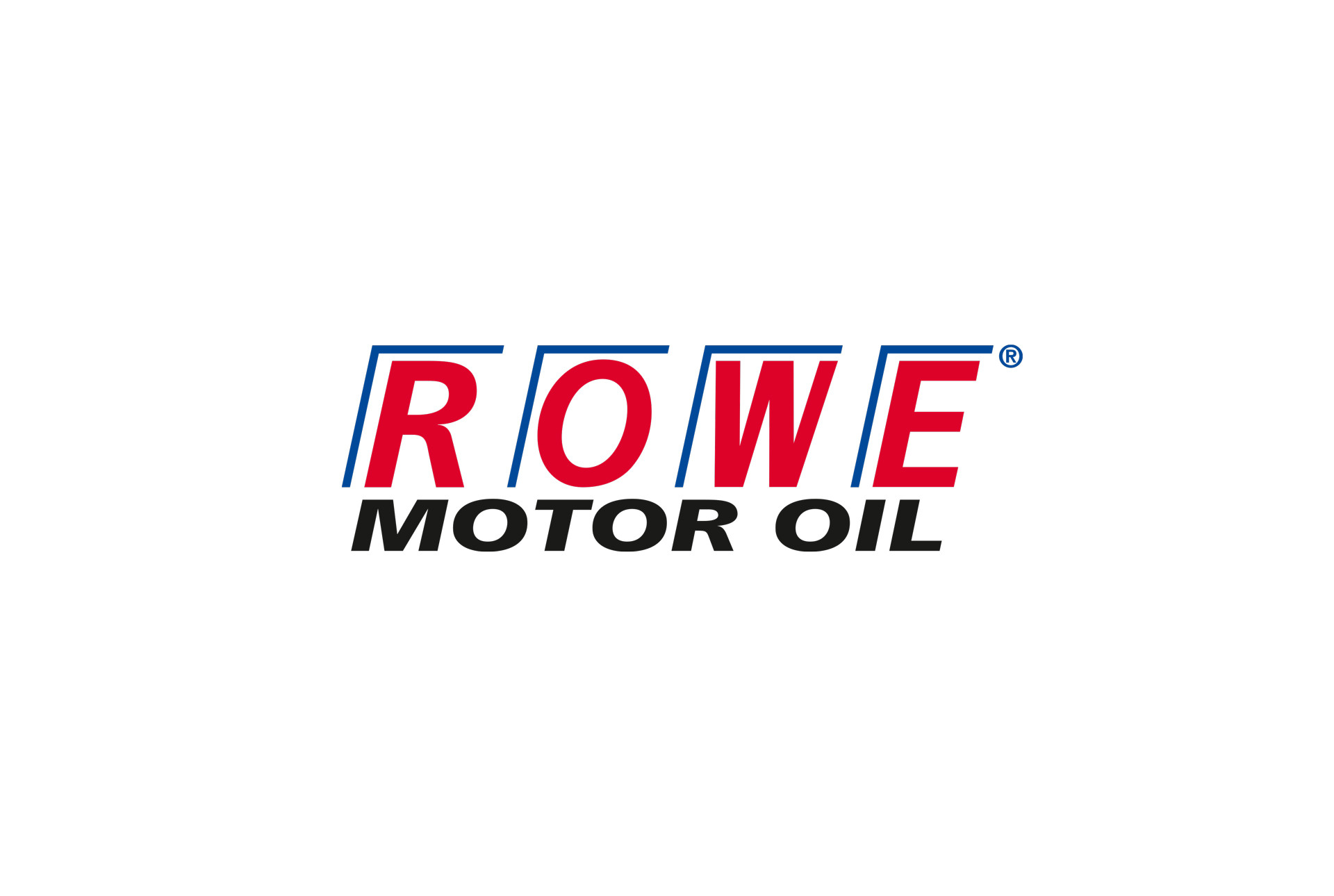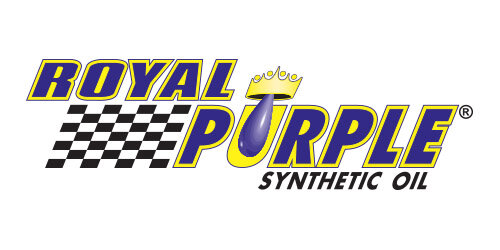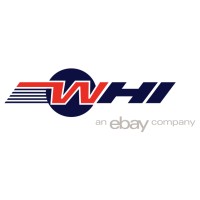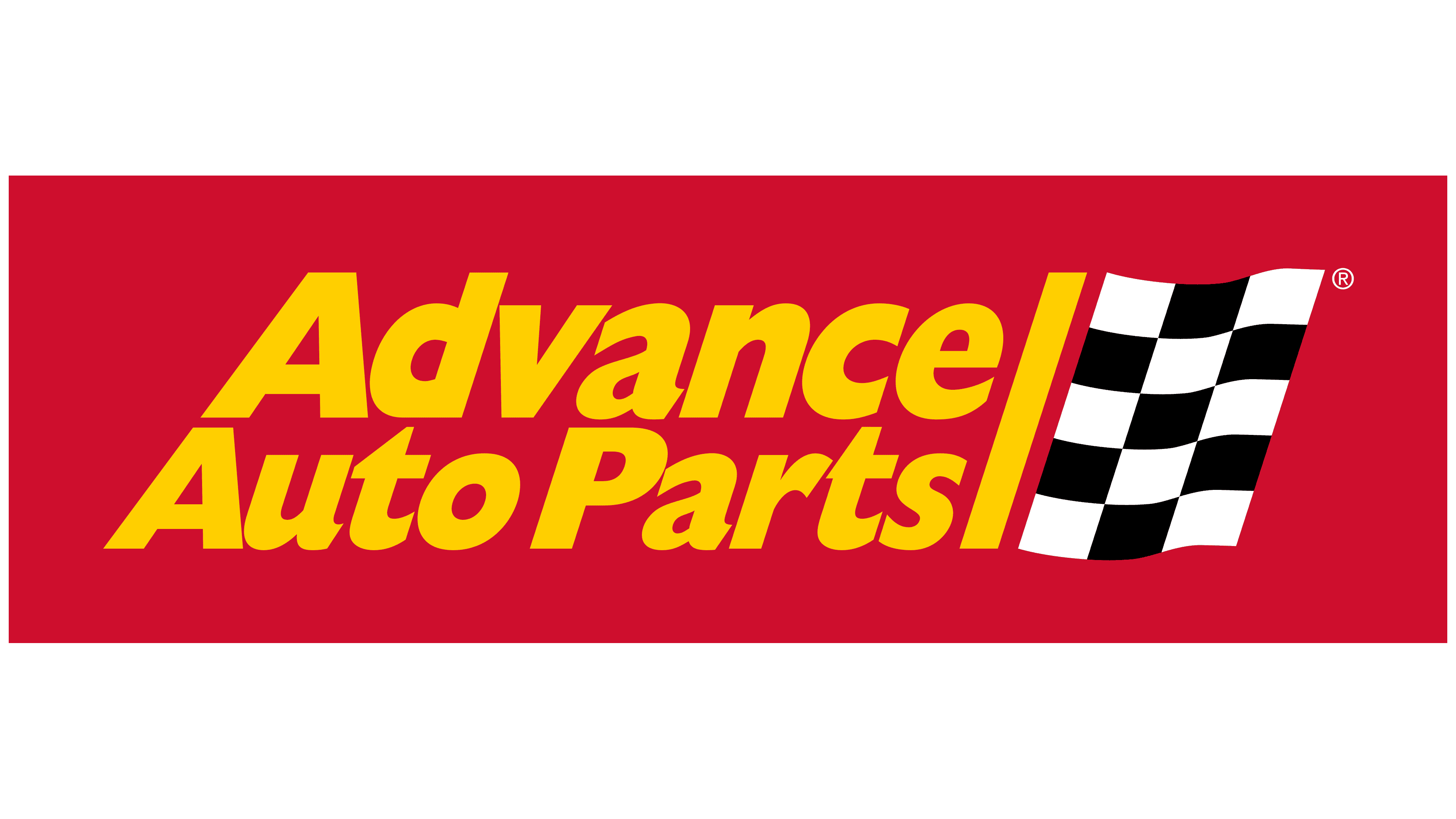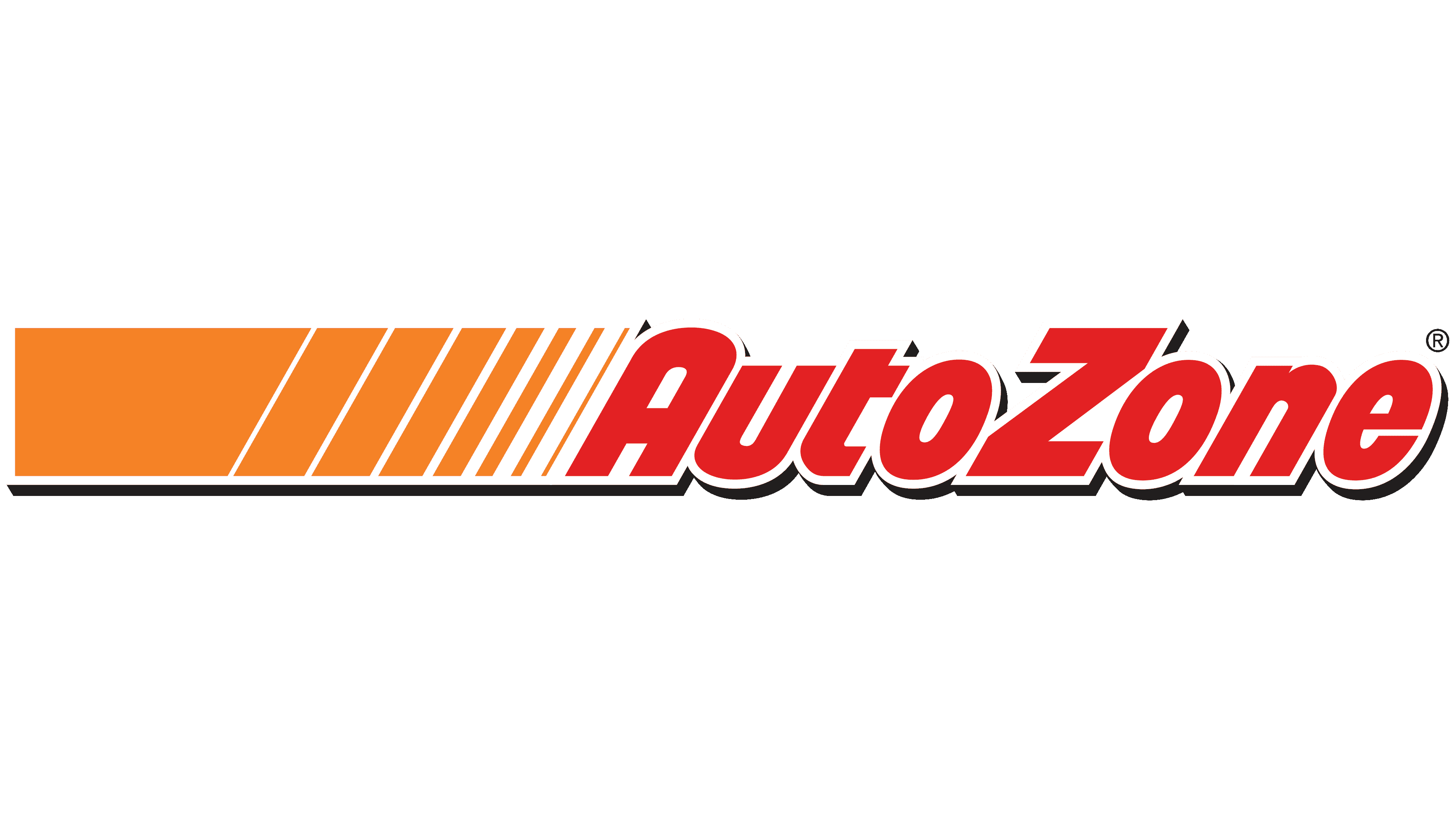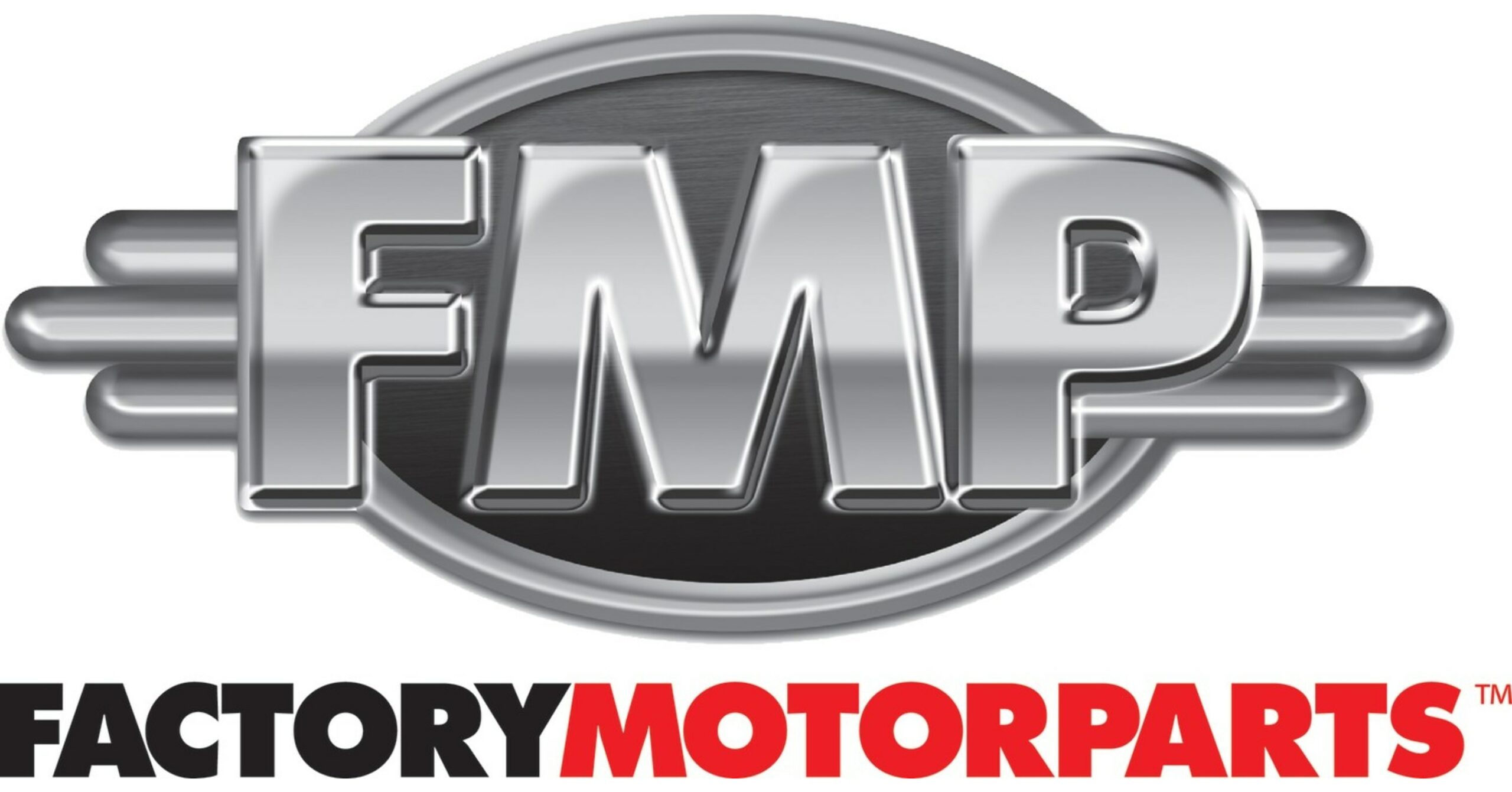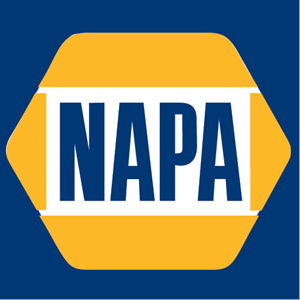Olyslager: The world’s largest database in OEM oil and fluid recommendations
Our software lets you create your products in our online cloud-based portal. These products can be linked to specifications and viscosities, and by linking the Olyslager OEM data to your product range, we can generate large amounts of ACES vehicle applications in one-go. Quickly and accurately. This not only saves time and resources, but as the Olyslager OEM data is maintained on a daily basis, it also ensures that your outputted catalog data is always up-to-date with correct lube recommendation to your customers.
By combining your knowledge of your products with the OEM recommendations that Olyslager holds, you can provide comprehensive and detailed application data that can help customers find the right products for their needs.
What is ACES?
The ACES exchange standard provides a common language and framework for sharing application data for automotive parts across different platforms and systems. This ensures consistency and accuracy in the data, making it easier for companies to create and maintain their catalogs. ACES has become a powerful file format for automotive retailers, website solutions, warehouses, manufacturers, and suppliers looking to improve their catalog systems and streamline their supply chain.
By using the ACES exchange standard, companies can enrich their catalog data with detailed application information for automotive parts, making it easier for customers to find the right products for their needs. Using a single, standardized XML format like ACES enables companies to share application data for automotive parts across different platforms and systems. ACES files also provide numerous benefits for manufacturers and suppliers, including improved accuracy, reduced errors, and increased efficiency. Using this exchange standard, companies can take their catalog systems to the next level and stay ahead of the competition in the fast-paced automotive industry.
What is PIES?
PIES (Product Information Exchange Standard) is a subset of the ACES (Automotive Aftermarket Catalog Exchange Standard) format that is specifically designed for the exchange of product information for both hard parts and fluids. While ACES provides the framework for the exchange of application data, PIES provides a standardized format for product information, including attributes like brand, part number, description, pricing, and images. PIES is used to describe the attributes and features of a product, while ACES is used to describe the vehicle and its fitment with the product.
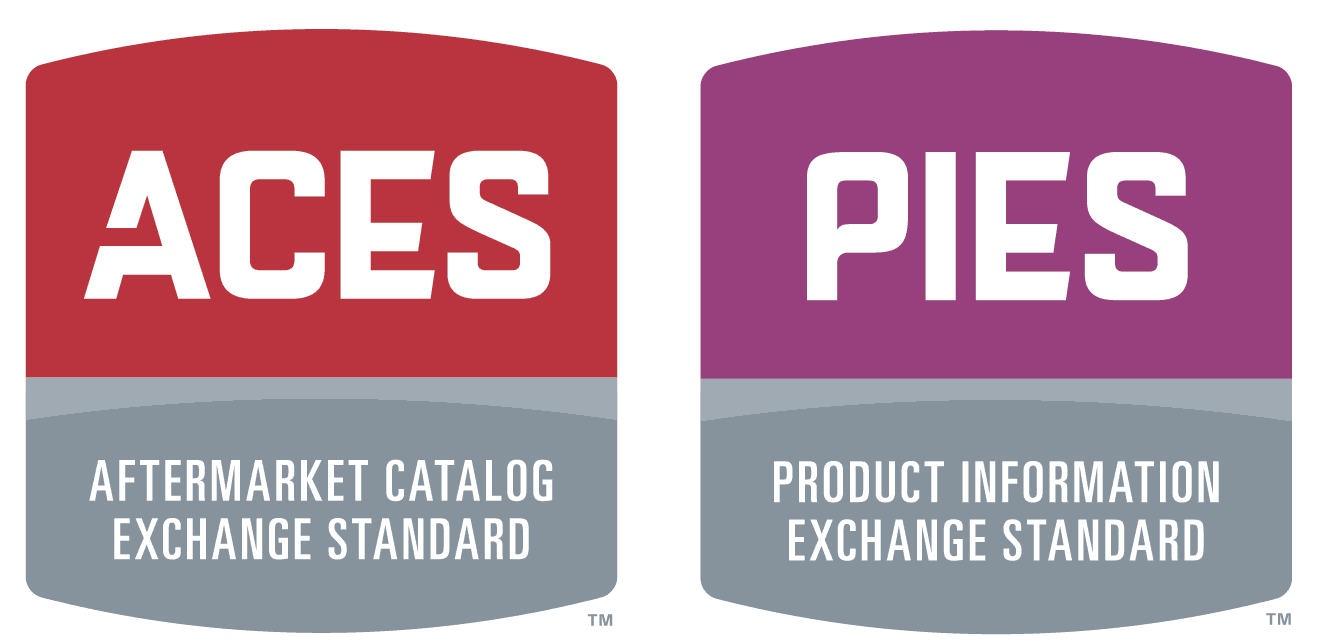
Are ACES and PIES mainly designed for hard parts?
The ACES and PIES formats can be used any automotive part, including hard-parts and fluids. While these formats were originally developed for hard parts, it can also be used to exchange application and product data for fluids, such as engine oil, transmission fluid, coolants and many more.
Recommending the right automotive part is critical to ensuring customer satisfaction and reducing returns. This not only reduces the risk of returns and warranty claims, but also helps to build trust and loyalty with customers. Additionally, reducing returns can help companies save money on shipping, restocking, and other associated costs, making it a win-win situation for both the company and the customer. This is particularly important for items like oils and fluids, where the wrong recommendation can lead to engine failure or damage to other components. And this is exactly where Olyslager excels, getting your lube data right – every single time.
Valuable insights
Recommending the right automotive part is critical to ensuring customer satisfaction and reducing returns. This not only reduces the risk of returns and warranty claims, but also helps to build trust and loyalty with customers. Additionally, reducing returns can help companies save money on shipping, restocking, and other associated costs, making it a win-win situation for both the company and the customer. This is particularly important for items like oils and fluids, where the wrong recommendation can lead to engine failure or damage to other components.
A wide range of oil manufacturers have already chosen Olyslager as their leading recommendation tool. Having access to Olyslager OEM data, readily available 24/7, combined with your company’s product expertise, your company can provide valuable insights and recommendations for the US car parc.
We proudly serve
A wide range of oil manufacturers have already chosen Olyslager as their leading recommendation tool and data provider. Below is a small selection of companies for whom Olyslager currently builds ACES data.
And our generated application data is used in a wide array of systems that can now use your lubricant data more efficiently and effectively, reducing duplication of effort and improving the overall quality of their catalog systems.
Explore our other products
Hard work pays off
Hard work pays off, as the Olyslager ACES output was presented with the 2020, 2022 and 2023 SEMA Data Excellence award, which we see as a confirmation on our quality standard and a praise for our ongoing efforts on this exchange standard.

Want to know what’s possible for you?
Visit our booth at the ACPN Connect Trade Show, or use the form below
DATA INTELLIGENCE FOR THE LUBRICANT INDUSTRY
The number one in lubricant data software. What can we do for you?
